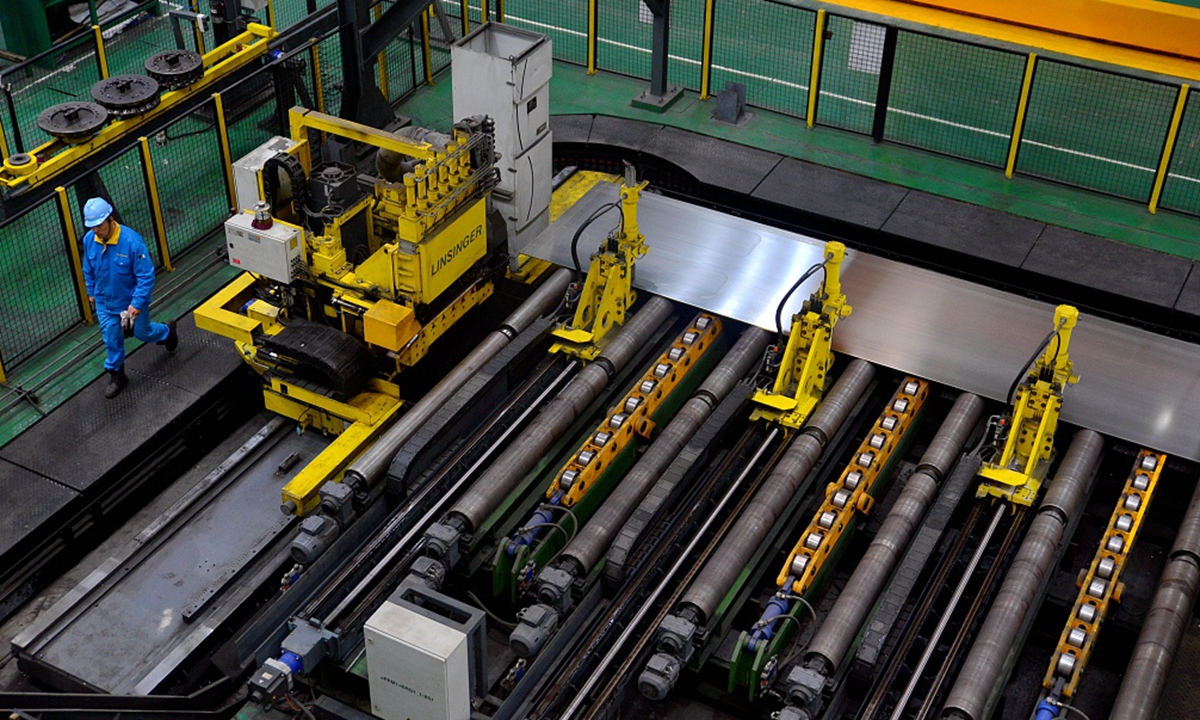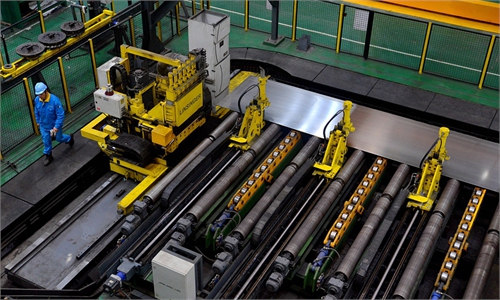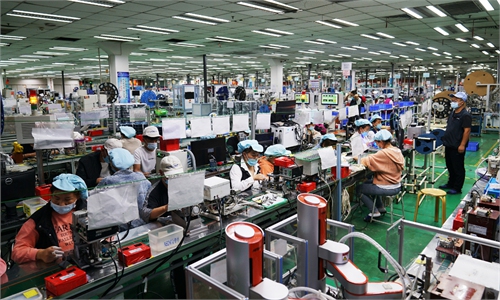China’s PMI beats forecast to hit 11-year high in Feb, pointing to fast economic recovery

Industry PMI Photo:VCG
China's official manufacturing purchasing managers' index (PMI) beat expectations to hit an 11-year high of 52.6 in February, data from the National Bureau of Statistics (NBS) showed on Wednesday, offering more signs of China's fast economic recovery.
February's PMI, a main gauge of manufacturing activity, was an increase of 2.5 points from January, beating a forecast of 50.5 issued by Reuters. In January, the PMI stood at 50.1, up from 47 in December.
A reading above 50 indicates expansion, while one below points to contraction.
Analysts noted that the better-than-expected performance signaled a further revival in the nation's economy, and they expect the figure to remain in expansion territory during the coming months amid a pick-up in market demand, logistics and industrial operations.
The rapid expansion came amid the accelerated resumption of factory output after the Chinese New Year holidays, while the lingering impact of the epidemic gradually shifted, according to Zhao Qinghe, a NBS senior statistician.
The sub-index tracking production reached 56.7 in February, a monthly increase of 6.9 points, while the figure for new orders grew 3.2 points to 54.1.
China's economy is catching up as the major disruptions from the epidemic have been subsiding, which previously lowered market expectations and delayed purchases by enterprises, Hu Qimu, deputy secretary general of the digital-real economies integration Forum 50, told the Global Times on Wednesday.
Hu said that China has been following strategies related to investment, consumption and exports since the second half of 2022, along with boosting domestic demand and the development of the digital economy, aiming to hedge against potential headwinds amid weakened external demand this year.
In comparison with some Western economies that constantly adopt aggressive rate hikes, China has been reducing interest rates, offering strong policy support to domestic enterprises on top of already implemented policies, Dong Dengxin, director of the Finance and Securities Institute of the Wuhan University of Science and Technology, told the Global Times on Wednesday.
The PMI for large enterprises rose by 1.4 points to 53.7, while the reading for small enterprises increased 4 points to 51.2. The PMI for small businesses was back in expansion territory for the first time since May 2021.
The buoyant confidence of Chinese enterprises also comes as the nation made hard-won economic achievements in 2022 despite coping with complex external factors, said Dong.
China's GDP exceeded 100 trillion yuan ($14.55 trillion) for the third consecutive year in 2022 despite complex external challenges, according to the NBS.
In February, the non-manufacturing PMI stood at 56.3 with the readings for the services sector and construction industry rising as construction of major projects started or resumed.
The total amount of investment that has been made public by 18 provinces and regions for domestic projects reached nearly 10 trillion yuan recently, news outlet Yicai reported.
The Ministry of Finance will further expand the issuance of local government special-purpose bonds to support the construction of major domestic projects.
New issues exceeding 4 trillion yuan in 2022 supported more than 30,000 projects, the vice finance minister said at a press conference on Wednesday.
Shares and the yuan got a boost from the new statistics. The offshore yuan strengthened 1 percent against the dollar on Wednesday.
China's three major stock indices finished higher on Wednesday, with the Shanghai Composite Index surging past the 3,300 level.
Going forward, three major factors will likely affect China's manufacturing sector: overseas demand, the recovery of the real estate industry and domestic vehicle sales, Zhou Maohua, an economist at Everbright Bank, said in a statement sent to the Global Times.
In February, the index tracking new export orders was up 6.3 points to 52.4, ending 21 months of contraction and supporting domestic demand and the recovery of small firms, Wu Chaoming, deputy director of the Chasing International Economic Institute, told the Global Times on Wednesday.
The private Caixin PMI stood at 51.6 for February, the first time in expansion territory since August 2022 and the highest since July.


